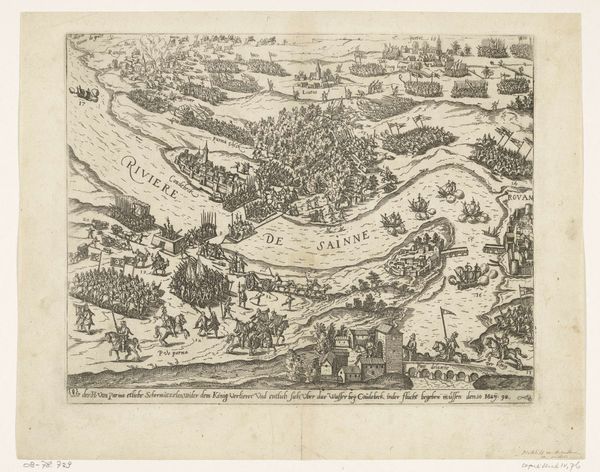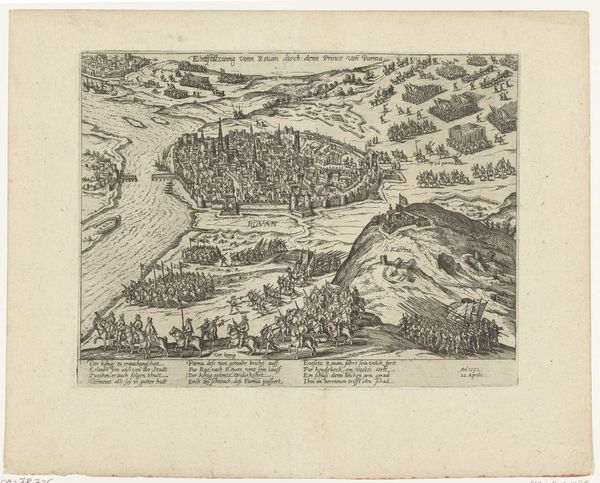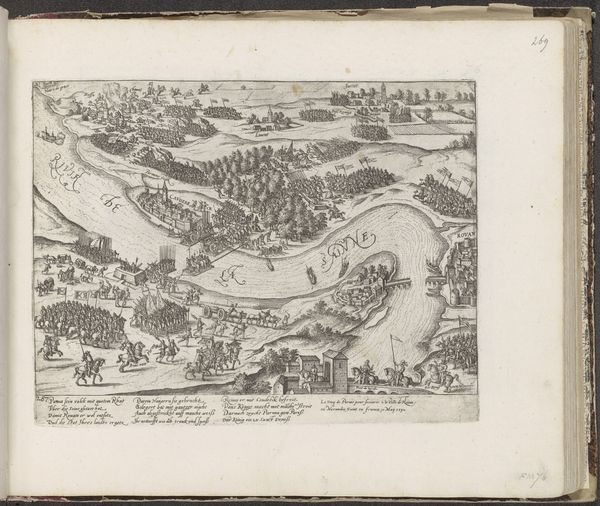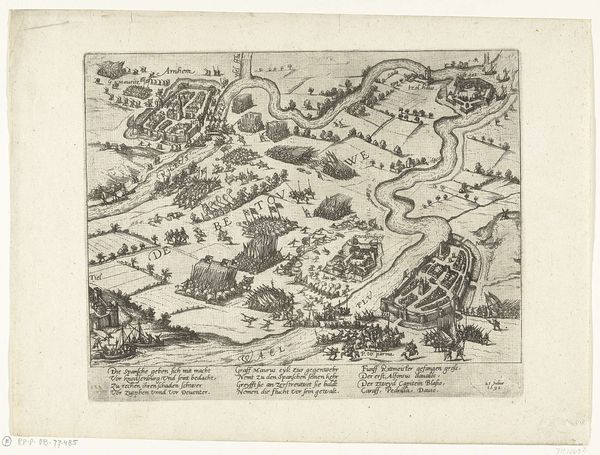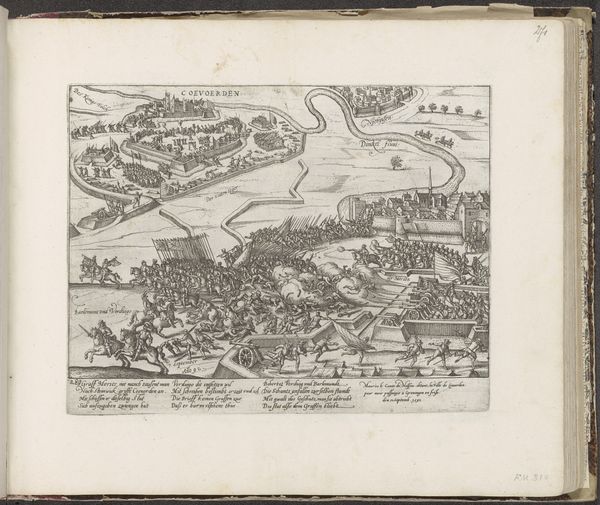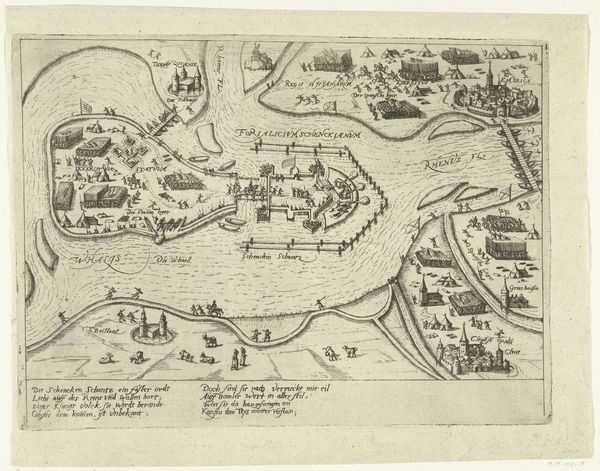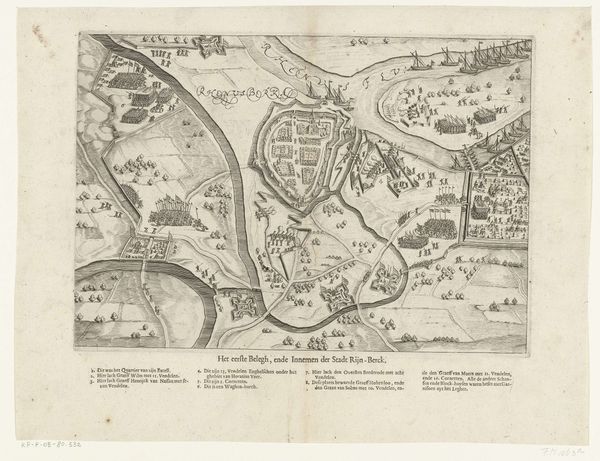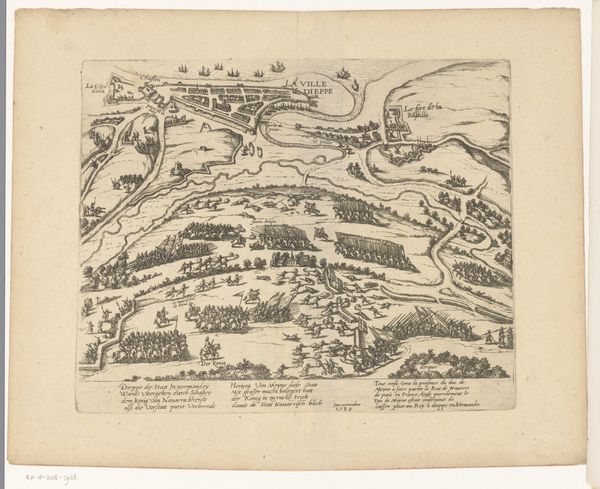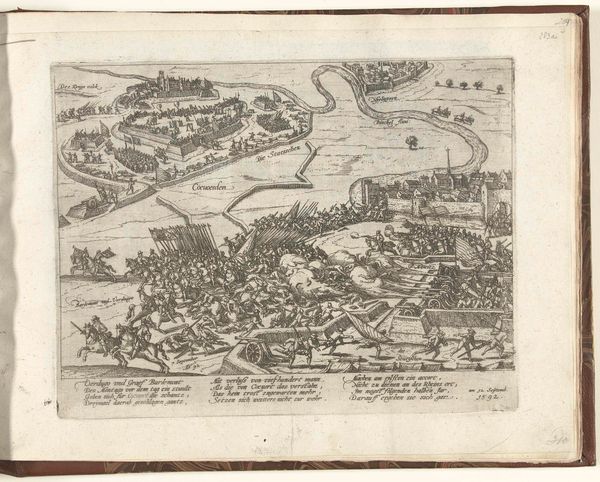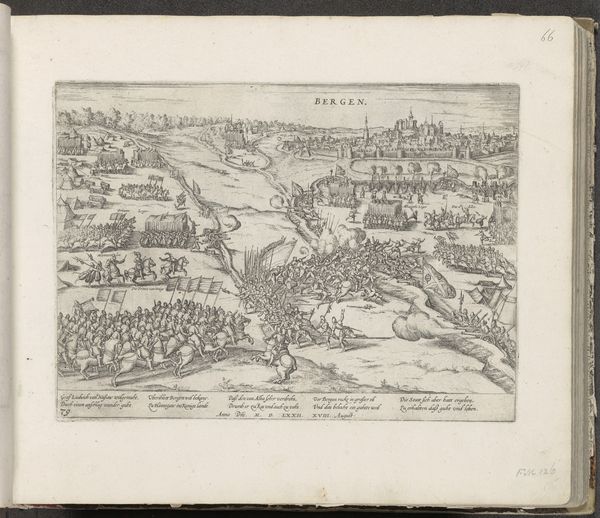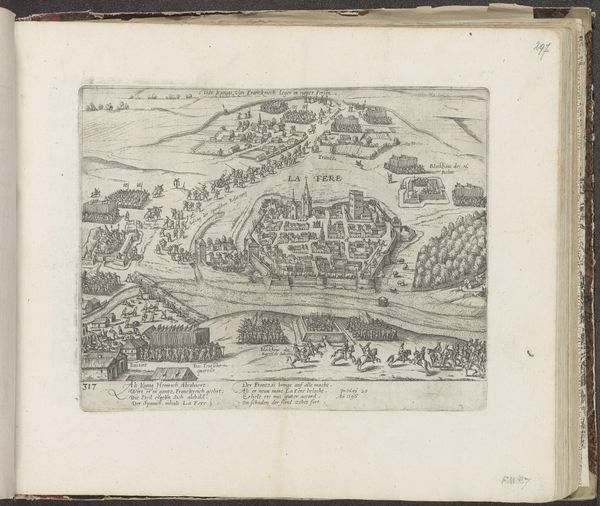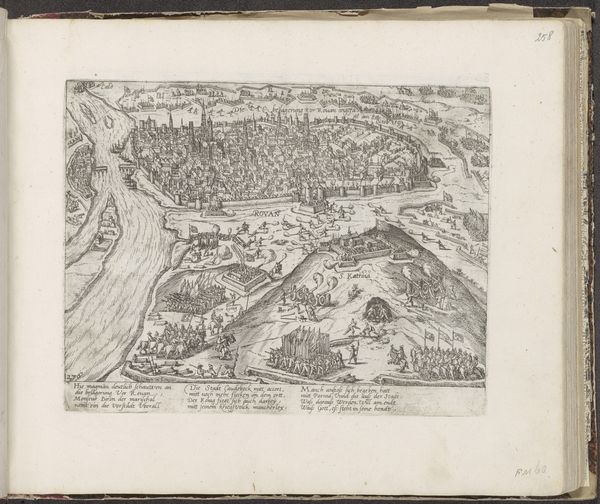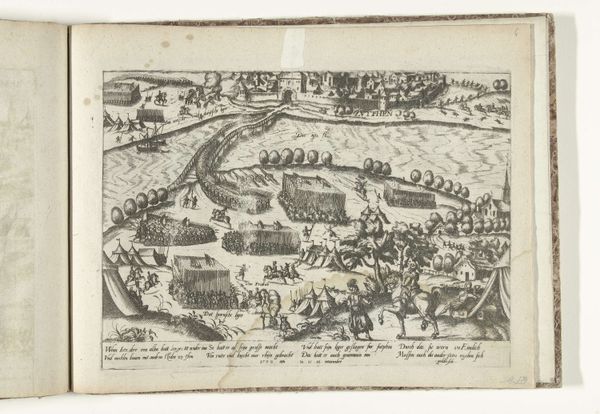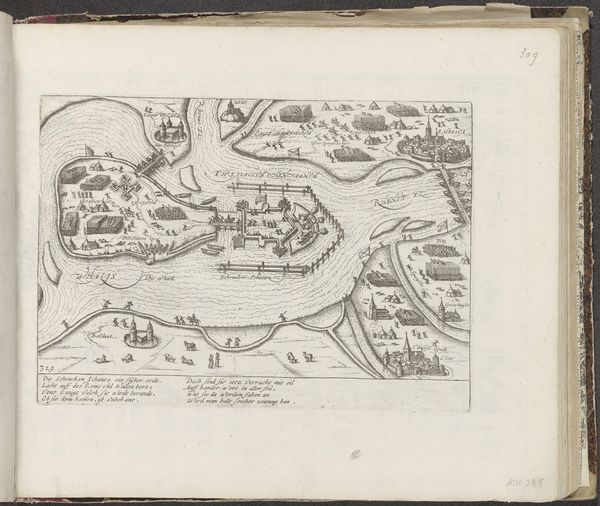
drawing, print, ink, engraving
#
drawing
#
pen drawing
# print
#
pen illustration
#
pen sketch
#
old engraving style
#
landscape
#
figuration
#
personal sketchbook
#
ink
#
ink drawing experimentation
#
pen-ink sketch
#
pen work
#
sketchbook drawing
#
cityscape
#
history-painting
#
northern-renaissance
#
sketchbook art
#
engraving
Dimensions: height 225 mm, width 292 mm
Copyright: Rijks Museum: Open Domain
This print, made in 1592 by Frans Hogenberg, depicts Parma crossing the Seine at Caudebec. The image is executed as an engraving: a painstaking process of incising lines into a metal plate, inking it, and pressing it onto paper. Look closely, and you’ll see that this technique lends itself to depicting texture and intricate detail, especially in the rendering of human figures and military formations. The materiality of the print also speaks to the era's modes of production and consumption. Engravings like these were essential for disseminating information during the early modern period, acting almost like a form of mass media. Hogenberg's choice of engraving reflects the practical concerns of producing multiple copies efficiently. The labor-intensive process also speaks to the growing importance of skilled craftsmanship and the rise of print culture as a means of documenting and understanding contemporary events. By considering both the material and the making, we can appreciate how even a seemingly straightforward historical record is deeply intertwined with its social and cultural context. This challenges any firm distinction between art, craft, and document.
Comments
No comments
Be the first to comment and join the conversation on the ultimate creative platform.
